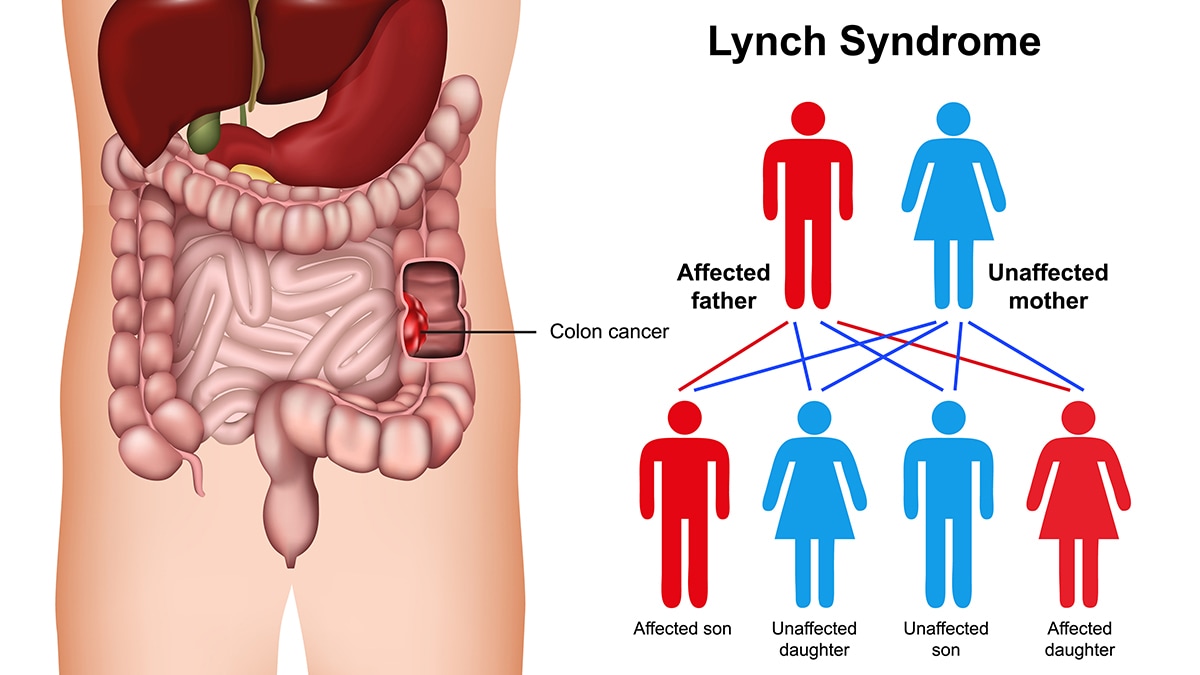Key points
- Lynch syndrome is the most common cause of hereditary colorectal (colon) cancer.
- People with Lynch syndrome are more likely to get colorectal, uterine (endometrial), and other cancers

What it is
Lynch syndrome, also known as hereditary non-polyposis colorectal cancer (HNPCC), is the most common cause of hereditary colorectal (colon) cancer. People with Lynch syndrome are more likely to get certain cancers and to develop these cancers at a younger age (before age 50). Lynch syndrome-related cancers include
- Colorectal (colon)
- Uterine (endometrial)
- Ovarian
- Stomach (gastric)
- Small intestine
- Urinary tract (kidney, ureter, bladder)
- Biliary tract (liver, gall bladder, bile ducts)
- Pancreatic
- Prostate
- Brain
- Certain types of skin cancers
Lynch syndrome causes about 3,800 colorectal cancers and 1,600 uterine (endometrial) cancers per year.
Causes
Lynch syndrome is due to inherited changes (mutations) in genes that affect DNA mismatch repair, a process that fixes mistakes made when DNA is copied. These genes (MLH1, MSH2, MSH6, PMS2, and EPCAM) normally protect you from getting certain cancers, but some mutations in these genes prevent them from working properly.
Everyone has two copies of each of the genes involved in Lynch Syndrome, one from their mother and one from their father. Even if a person inherits a genetic change in a Lynch syndrome gene, they still have the normal copy of the gene from the other parent. Cancer occurs when a second genetic change affects the normal working copy of the gene, so that the person no longer has a copy of the gene that works properly. Unlike the inherited Lynch syndrome genetic change, the second genetic change would not be present throughout the person's body, but would only be present in the cancer tissue. However, not everyone with Lynch syndrome will get cancer.
Colorectal cancer also can be caused by changes in genes other than those related to Lynch syndrome. This means that some families with a history of colorectal cancer will not have genetic changes in a Lynch syndrome gene. These genetic changes might be picked up through genetic testing using multigene panels, which look for genetic changes in several different genes at the same time.
